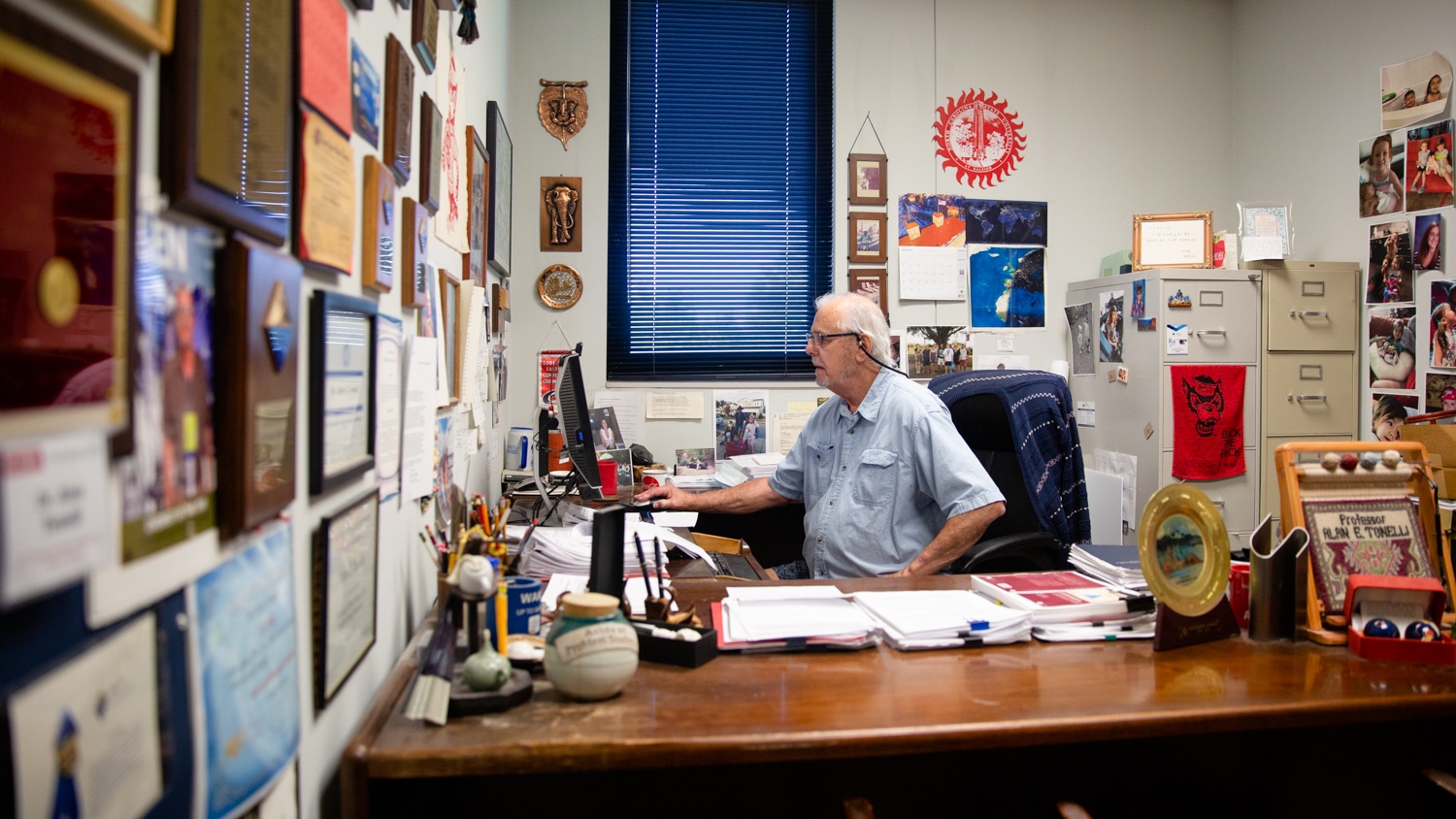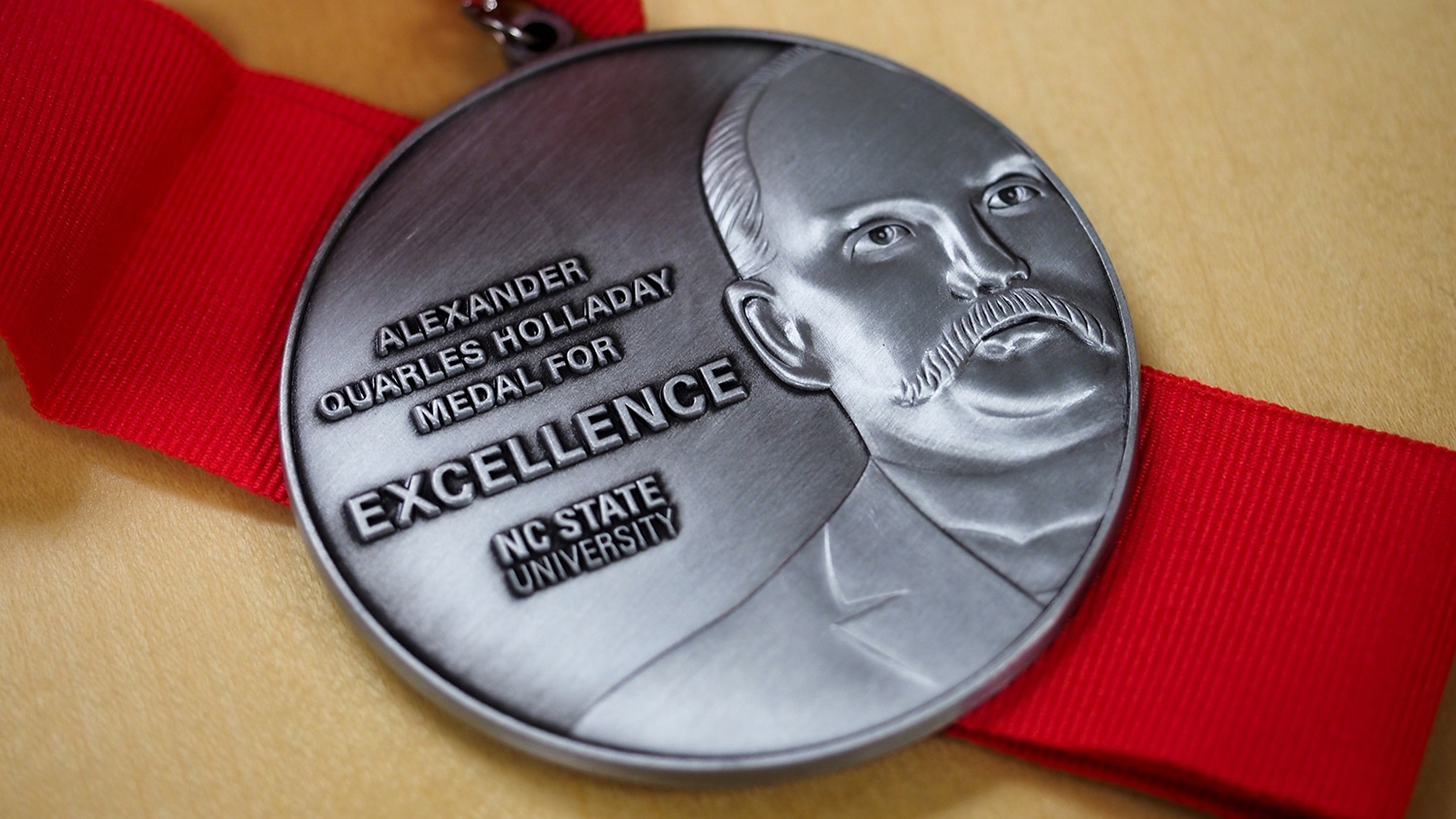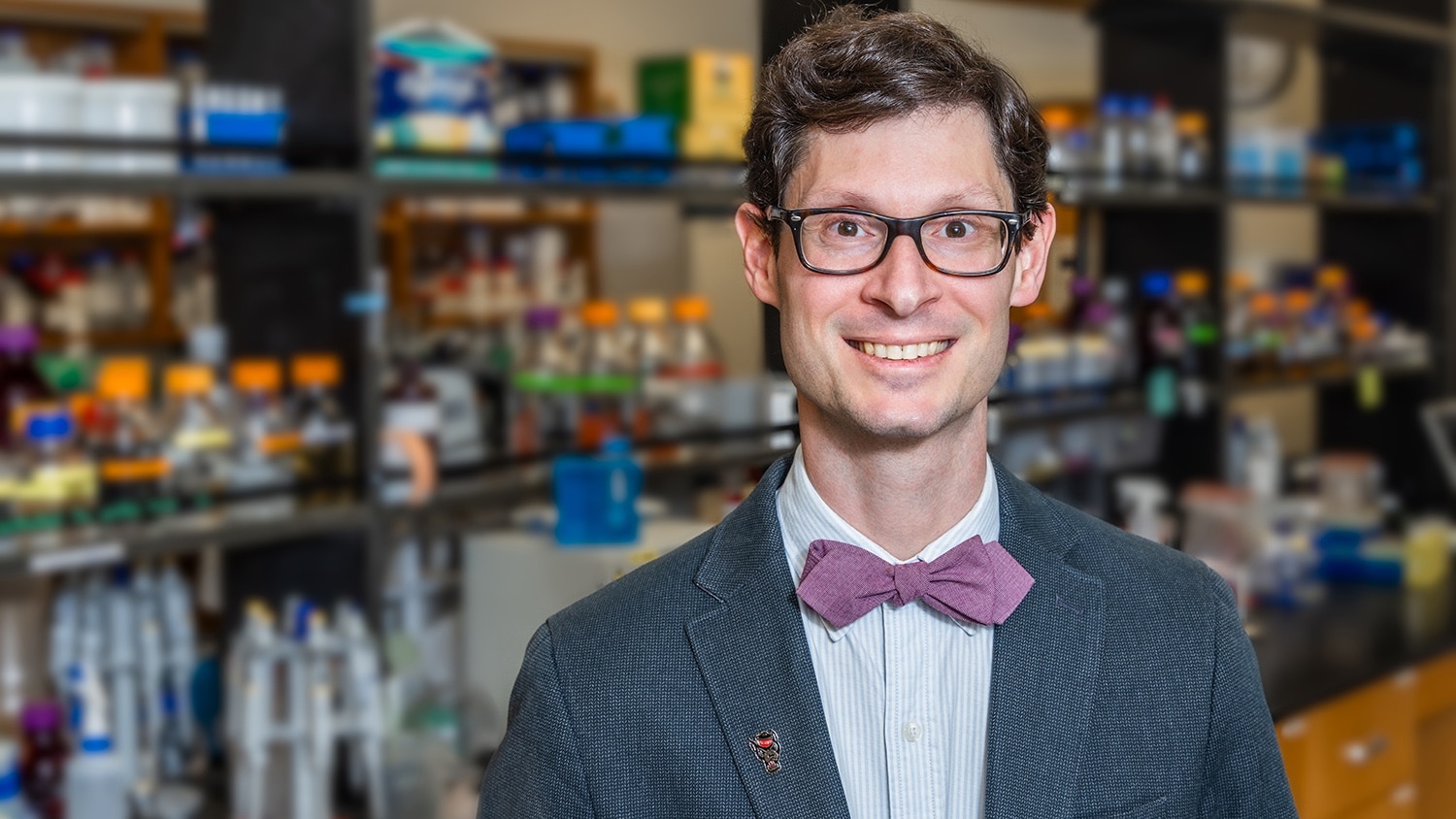By Raymond Jones
If there’s one thing people will miss when Al Tonelli retires, it will be the “personal touch” that endeared him to so many students during his time at the Wilson College of Textiles.
Tonelli, who will retire on June 30 at age 81, is known for taking time to eat lunch on campus with his students. Many of them comment that this type of accessibility made their academic experience at NC State unique.

Tonelli will be leaving his position as INVISTA Professor of Fiber and Polymer Chemistry in the Department of Textile Engineering, Chemistry and Science. Although he’s been a fixture at the university for some 32 years, he is not in fact a career-long professor.
Worked at Bell Labs before NC State
Before NC State he spent nearly two dozen years working at Bell Labs, based in Murray Hill, New Jersey. Bell Labs no longer exists in the same form, but was always recognized as the nation’s and world’s premier research organization. Referred to by some as “the idea factory,” its people fostered significant innovations in satellites, television, cell phones, integrated circuits, computer languages and voice technology.
Tonelli says his experiences there produced work habits that served him particularly well after his transition to academia.

“Without question, the people I worked with at Bell were the world’s best researchers,” he says. “My co-workers and I had only one mandate, and that was to be at the very forefront of scientific and technological advances.”
He also brought the Bell emphasis on collaboration to NC State, where he quickly earned a reputation as an outstanding mentor.
Students always treated as colleagues
“I did not feel that students were ‘working under me’ during their time here,” he says. “I treated them like professional colleagues. I think that approach made them more motivated and successful.”
Jialong Shen, a former student and current colleague of Tonelli’s, praises him for teaching by example and demonstrating how to live a life doing what you love.
“He’s helped a countless number of students to get where they wanted to be,” Shen says, “including students from all age groups and backgrounds. I feel deeply indebted to him for all the attributes that I now possess.”

While Tonelli has spent a lot of time in the East, he’s actually a native of the Midwest who earned his undergraduate degree at the University of Kansas. In fact, he grew up in Cicero, Illinois, home of the infamous gangster Al Capone.
“My first home was located just down the street from one of Al Capone’s bungalows,” he remembers.
Studied polymer chemistry at Stanford
Capone’s career choices eventually took him to California, where he spent time at Alcatraz. Tonelli’s career path also took him to California, where he spent time earning a Ph.D. in polymer chemistry at Stanford University.
That focus on chemistry was not preordained, he says. Fortunately, a chemistry professor at the University of Kansas took an interest in Tonelli, because he proved to be a standout student in physical chemistry, a course that can trip up even the brightest chemistry scholars. He encouraged Tonelli to take the Graduate Record Exam (GRE), and his GRE performance gained him a graduate fellowship from the National Science Foundation.
This led to his application to and acceptance as a graduate student in Stanford’s chemistry department. There he was fortunate enough to find an academic advisor (Paul J. Flory) who was not only good at physical chemistry, but also subsequently won a Nobel Prize for his achievements in polymer science.
He lets students loose to find answers
Tonelli appreciated his graduate advisor because he didn’t micro-manage the student researchers.
“He gave us options and a general sense of direction,” Tonelli remembers, “and then let us loose to go find answers.”
I’ve met very few people who’ve enjoyed their careers as much as I’ve enjoyed mine.
Tonelli adopted this same approach at the Wilson College, and his interest in breaking bread with students is also a throwback to his time at Stanford.
“Back then we made tea by adding tea leaves to boiling water heated with a Bunsen burner,” he recalls, “and our advisor would hang around the lab and drink tea with us.”
Publishing provides a broader audience
In addition to his other attributes, Tonelli is known for being an extraordinarily prolific writer. He’s produced more than 130 single-author papers and collaborated with other researchers on another 450. He’s written three books as well, believing these publications are fundamental to his mission as an educator.
“Publishing,” he says, “is simply the way you share the results of your studies with a much broader audience.”

Tonelli was not seriously considering retirement until COVID hit. Being sequestered for long periods of time, he jokes that he and his spouse “found out we could actually get along.” He also enjoyed spending more time with his four local grandchildren, ages six through 13.
Asked what he will miss the most, he says – not surprisingly – it will be interaction with students. Nonetheless, he’ll be leaving academia with few if any regrets.
“I’ve met very few people,” he says, “who’ve enjoyed their careers as much as I’ve enjoyed mine.”
This post was originally published in Wilson College of Textiles News.
- Categories:



